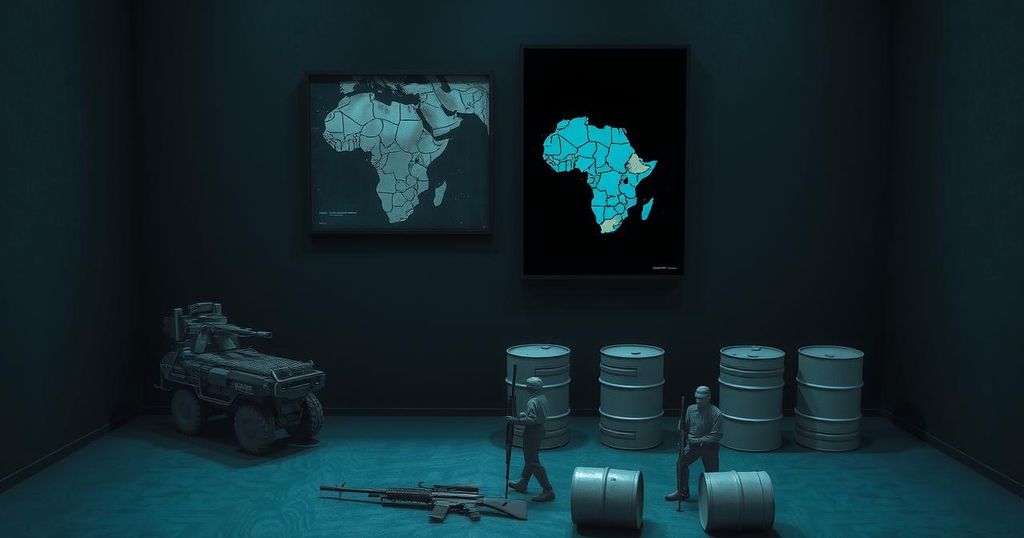South Sudan has detained the Petroleum Minister and several military officials linked to Vice President Riek Machar, raising concerns about the 2018 peace deal that ended a civil war. The detentions are said to have occurred without clear reasons, suggesting potential instability within the government. Additional military presence around Machar’s residence indicates escalating tensions amidst a fragile peace.
The recent detention of South Sudan’s Petroleum Minister Puot Kang Chol and several senior military officials aligned with Vice President Riek Machar has raised concerns about the stability of the peace agreement established in 2018. This agreement ended a prolonged five-year civil conflict between Machar and President Salva Kiir, resulting in significant loss of life. Despite the official peace, tensions remain high due to the ongoing fractious relationship between the leaders and frequent outbreaks of violence among rival communities.
According to Puok Both Baluang, spokesperson for Machar, the arrests occurred without clear explanations. Alongside the petroleum minister, the deputy chief of the army was also apprehended, and other officials allied with Machar face house arrest. “As of now, there is not any reason provided to us that led to the arrest or the detention of these officials,” Baluang informed Reuters, highlighting the uncertainty surrounding these actions.
In addition to the arrests, South Sudanese military forces have been stationed around Machar’s residence, although he successfully traveled to his office on Wednesday morning. These developments signal a strain on the fragile peace that currently exists in South Sudan, where political divisions often lead to unrest.
In summary, the detention of key officials in South Sudan, including the Petroleum Minister and military leaders associated with Riek Machar, is alarming and poses a threat to the fragile peace stemming from the 2018 agreement. The lack of communication regarding the reasons for these arrests further exacerbates tensions within the region, highlighting the continuing volatility in South Sudan’s political landscape and the precarious nature of its peace agreement.
Original Source: eastleighvoice.co.ke






